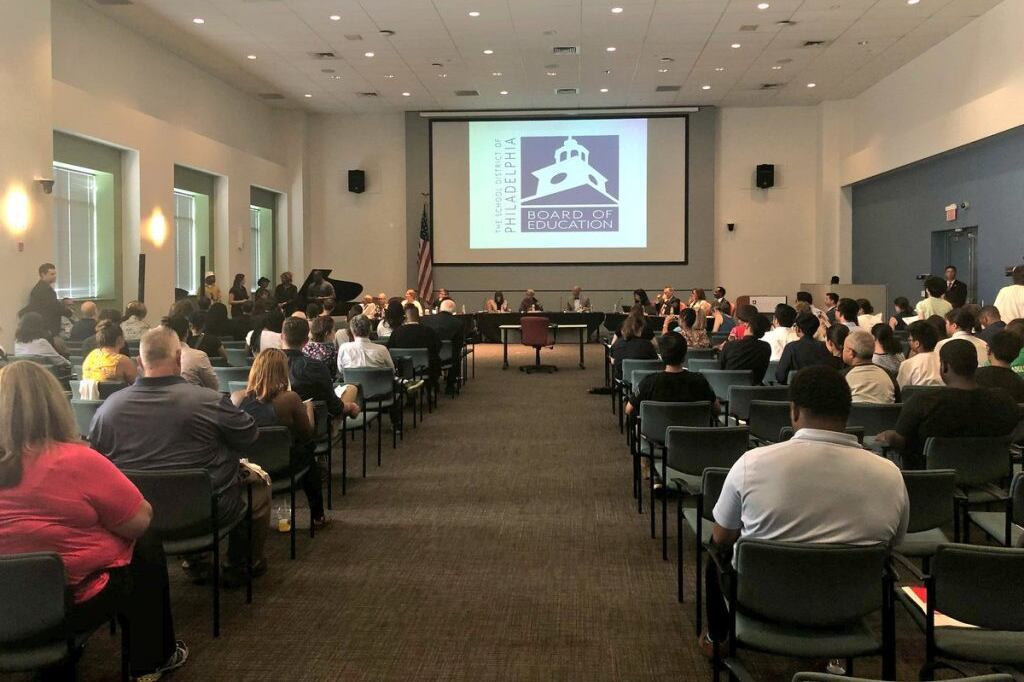For weeks, student leaders have called for their representatives on Philadelphia’s school board to have the right to vote on policies affecting them. But on Thursday, the student reps made it clear they don’t want to be full voting members of the board.
The two student representatives, Keylisha Diaz, a junior at Philadelphia Military Academy, and Toluwanimi Olaleye, a junior at George Washington Carver High School of Engineering and Science, said they would prefer to focus on their goal of getting resources for mental health services for students during the pandemic.
“When Tolu and I stepped into this role we came with very specific focuses and goals to highlight the importance of student support around mental health services and trauma,”Diaz said.
Diaz said virtual learning has been an adjustment for students, which has created mental health challenges for some.
Some students involved in the push to get voting rights for the board’s student representatives were disappointed by the current reps’ stance.
Youma Diabira, a senior at Central High School and a member of the Philly Black Student Alliance and UrbEd advocates, addressed the board at Thursday’s meeting after the student representatives.
“We don’t want a high chair at the table, we want a vote,” Diabira said. “It’s frustrating that the adults on the board are using the student representatives as mouth pieces. When students come together and call out board members that hold our fate of schooling and education in their hands and critique politics, policies and protest on the steps of 440 [district headquarters] in June weather, they deserve a vote.”
In addition to voting privileges, the student leaders want to create a 15-member student committee from diverse schools across the district to support and inform the two student representatives. They also are concerned about getting information about action items in advance of board meetings and ensuring a smooth transition when student representatives change each school year.
But in order to vote, students would need a ballot initiative to change the city charter, which states students are non-voting representatives. They would also need a change to the Pa. school code that requires board members to be at least 18 years old. That would require legislative approval.
Becoming fully members of the school board also could open up student representatives to legal action in lawsuits against the board.
Tamir Harper, executive director of the student organization UrbEd, said he and student leaders look forward to speaking to the student reps about their reservations.
“We understand this is something new and will take time for people to support and understand,” Harper said. “While - they do not support the pro-vote effort, we believe that we must think about the future representatives of the board. We also want to make it clear, voting power isn’t our only demand and we push the board to become knowledgeable on what we are asking for.”
According to a spokesperson from his office, Mayor Jim Kenney wants to hear from students directly before determining if changes are warranted, because of the legal and technical considerations that exist.
Diaz, one of the current student reps, also said she appreciated the school board’s new five-year plan, called “goals and guardrails,” which is intended to put the board’s focus on student achievement.
“We look forward to the new year to monitor the work being done to support all students to reach these goals and guardrails,” Diaz said. “The changes that the board have made are an exciting effort to ensure that you are putting us, the students, first.”






